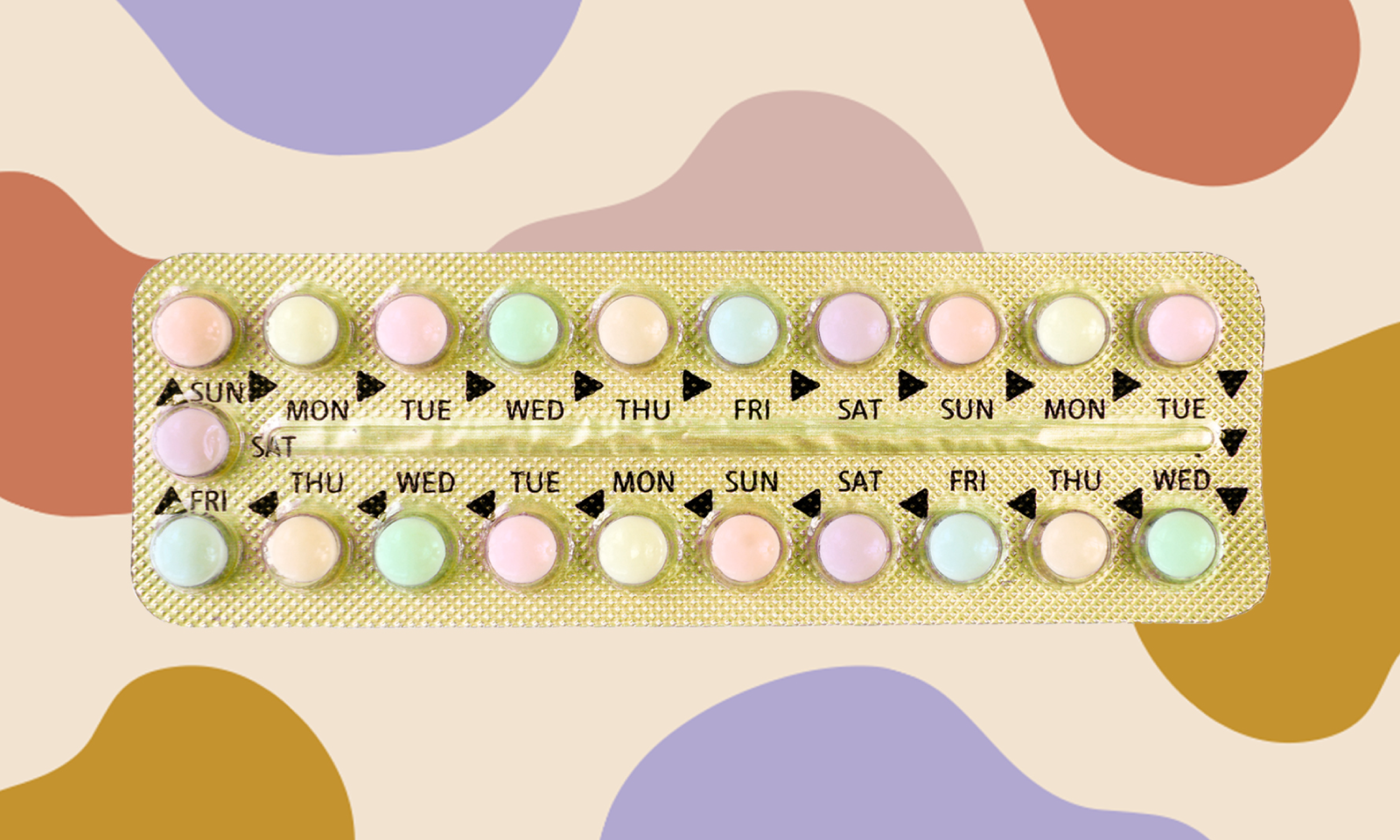Birth Control Pills and Your Period: What You Should Know

Getting a period in the middle of a pill pack might make you worry, but it doesn’t necessarily mean there’s anything wrong. There are reasons someone might experience unexpected vaginal bleeding, and not all of them have to end up with someone seeking medical advice.
Of course, we’d always say to speak to your doctor if you’re concerned about irregular periods but if you want to learn more about what could be happening first, take a look through our guide here.
Is it normal to get a period in the middle of a pill-pack?
While you shouldn’t have a full period in the middle of a pack of combination pills, for instance, it’s perfectly normal to get light bleeding or “spotting” when you’re still taking birth control. Some may also experience a heavier bleed, though it won’t usually be like a complete period that you’d ordinarily have at the end of a pill pack.
Either way, it’s called “breakthrough bleeding”, and it’s not unheard of for those of us who have periods. According to research by Patient.com, up to 20% of people using hormonal birth control experience breakthrough bleeding or spotting when using combined hormonal contraception. Experts say this typically settles after time, and that hormonal contraception users should persevere for 3 months, before considering switching to another birth control method, if breakthrough bleeding continues.
If you experience spotting or breakthrough bleeding while using birth control, you are not alone, and this typically won't be anything to worry about.
What could cause breakthrough bleeding?
Breakthrough bleeding can be a common side effect of taking birth control, especially if you’re on hormonal contraceptives, and you’ve only started taking them within the last 3 to 4 months. It’s also possible to experience breakthrough bleeding if you’ve recently switched from one type of birth control to another, or if you’ve switched birth control pills and your new prescription has a higher oestrogen dose.
Contrary to popular belief, the pill doesn’t exactly stop your period, and the type of contraceptive you’re using is often a huge factor in whether you experience breakthrough bleeding. Some birth control, like low-dose birth control pills, are practically associated with getting a breakthrough bleed! But you may wonder if other types of birth control pill can do the same thing, and we’re here to tell you that they can.
Let’s take a quick look at the different types of birth control pill in relation to breakthrough bleeding:
Combination pills
Research performed by Jennifer Villavicencio and Rebecca H Allen into unscheduled bleeding and contraceptive choice found that between 30 and 50% of people using combination birth control pills experience breakthrough bleeding in the first 3 months of using them. However, this drops to between 10 and 30% after the 3-month mark.
Progestin and Progestegon-only pills
Breakthrough bleeding is the most common side effect you’ll find when taking progestin and progestogen-only pills, which you might also see called the “mini pill”. The pattern of breakthrough bleeding is also more unpredictable than if you were taking combination pills. This is most likely because the mini pill is continuous birth control and doesn’t have a break.
In research performed by G.Kovacs, and published in Volume 11 of the journal Human Reproduction, up to 70% of mini pill users experienced breakthrough bleeding or spotting during 1 or more of their menstrual cycles. If you are one of these users, don't worry — you're certainly not in the minority.
You’re more likely to experience a breakthrough bleed if you don’t take your mini pill at the same time every day. Even missing your pill by as much as three hours can significantly increase your risk of bleeding, as well as an unplanned pregnancy.
Can other types of hormonal contraceptives cause breakthrough bleeding?
Yes, they can, so you might want to watch out for that as well. Different types of hormonal contraceptives that can cause breakthrough bleeding include:
- Birth control implants
- Birth control shots
- Hormonal intrauterine devices (IUDs)
- Skin patches
- Vaginal rings
What else can cause bleeding while on birth control?
Although breakthrough bleeding is common with a number of birth control methods, particularly the combined birth control pill and mini pill, there are other factors that can cause breakthrough bleeding. Here are some of the most common:
Your pill's cycle
It’s more likely that you’ll experience a bout of breakthrough bleeding if you’re on continuous birth control packs (when you’re taking active hormones for a year or longer with no breaks). It can also happen in packs with shorter time spans, such as those that take you through a period every 3 months or so.
How often you take your pill
Missing a dose is a common cause of breakthrough bleeding. By remembering to take yours every day, you may reduce the chance of getting it, or even find that the problem goes away entirely.
If you’re using the mini pill, you should also remember to take your dosage at the same time every day. This ensures it stays just as effective as you want it to be.
Having vomiting or diarrhoea
If you’ve been unwell and it’s involved vomiting or diarrhoea at any point, there’s a chance that your body might’ve rejected the pill instead of absorbing it. This can cause the contraceptive to be ineffective and might mean you’ll end up with spotting or breakout bleeding.
Starting new medications or supplements
If you’ve recently started a new series of medications or supplements, they may be interfering with your birth control. Common medications and supplements that are known to interfere with birth control include.
- Certain antibiotics
- Some epilepsy medications
- Some antiretroviral medications that are used to treat HIV
- St John’s Wort
- Activated charcoal
Smoking
People who smoke are more likely than other groups to find that they’re getting breakthrough bleeding on their periods. It can also lead to a number of other complications related to your period, as well as health problems in general. Research which supports a link between smoking and, irregular cycles, and breakthrough bleeding was published in the American Journal of Obstetrics and Gynaecology, following clinical trials on a sample group of smokers carried out by M J Rosenberg.
Does getting a period in the middle of a pack mean I'm pregnant?
Getting breakthrough bleeding, even when you’re on your most effective kind of birth control pill or contraceptive, doesn’t necessarily mean you’re pregnant. In fact it’s highly likely that you’re not, if you’ve been taking oral contraceptive pills as they’ve been prescribed.
If you’ve missed a dose along the way, or have any other symptoms that could indicate you’re pregnant, a doctor or healthcare provider can perform a pregnancy test for you. This will help you to rule out or confirm a pregnancy.
What if the bleed looks like a heavy period?
If the bleed looks like a heavy period and is heavy enough to fill a tampon or pad per hour for around 2 to 3 hours, then please don’t hesitate to get in touch with your doctor. This is especially the case if you’re also light-headed or dizzy, as this could be a sign that something else is going on.
When else to have a talk with your doctor
In most cases, breakthrough bleeding won’t be anything to worry about and you won’t need to talk to a doctor or healthcare provider. It’ll go away on its own and you’ll be able to get back to your day-to-day life without thinking about it. However, if you’re really getting concerned about it. If the flow looks like a heavy period, or it comes every month with other symptoms, then it wouldn’t hurt to book yourself in for a checkup.
When you go to your GP’s surgery or attend a sexual health clinic, an experienced healthcare professional will talk to you about the things you’ve been experiencing and may suggest doing a few tests. These may range from cervical screenings (if you’re aged between 25 and 64) and pelvic ultrasound scans to tests for STIs and pregnancy.
In any case, going to your doctor or healthcare provider will be the first step in finding out more about your breakthrough bleeding. The sooner you go, the sooner you can start to find out more and plan ahead for your healthcare needs.
Stop the spotting and stay fresh and dry all day
If you’re on the pill and you’ve found that you often experience spotting or breakthrough bleeding, we’ve got the perfect solution! Our range of reusable period pants collections are ideal for catching breakthrough bleeding of all kinds.
Whether your spotting’s light and only a little bit noticeable, or even if it’s a heavier flow that makes it look like you’re getting a period in the middle of a pill pack, our undies are designed with multi-layer tech that absorbs it and keeps you feeling dry and fresh. They’re totally reusable, too ‒ just toss a worn pair straight in the wash when you’re done and hang them to dry for next time!
You’ll even get 20% off your first order as a new customer with code 20OFF, so what are you waiting for? Pick out all your favourite pairs of period underwear and handle your spotting and breakthrough bleeding in style!
- Tags: Periods



